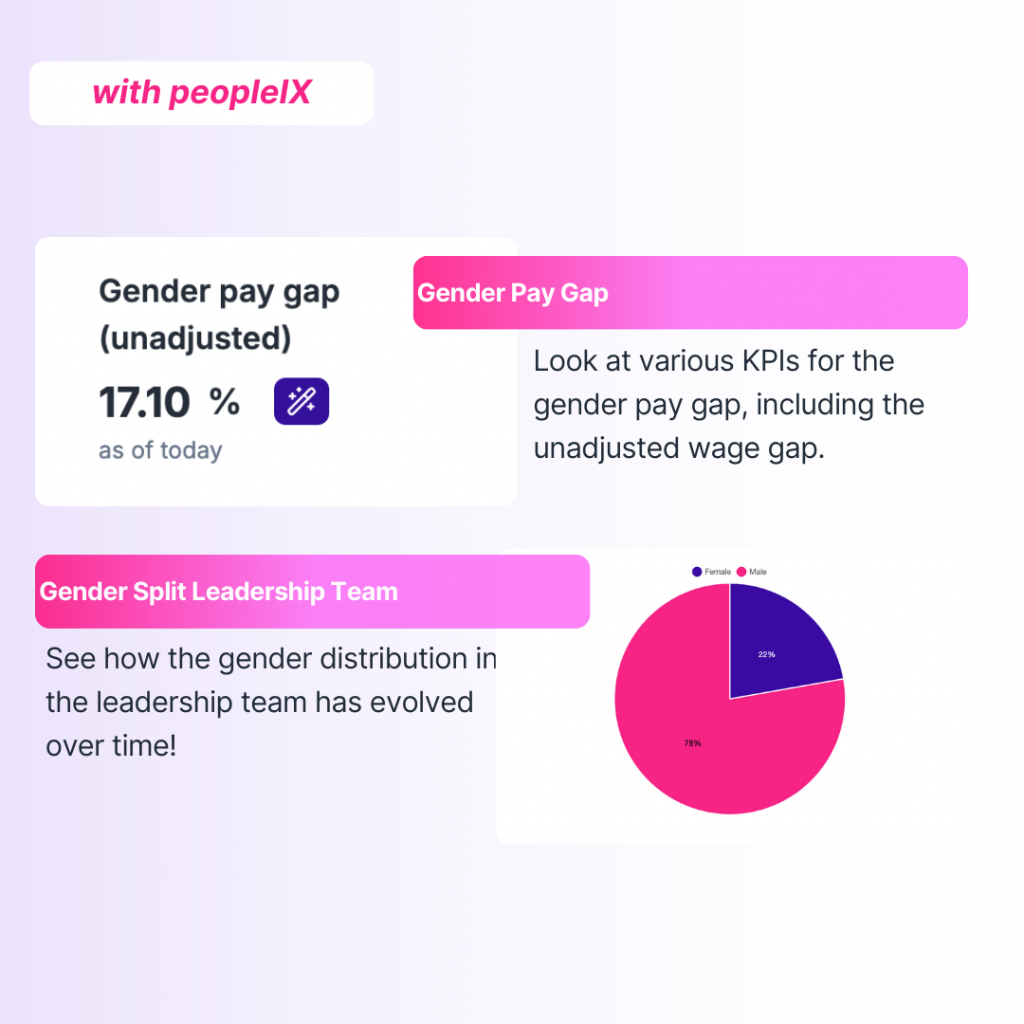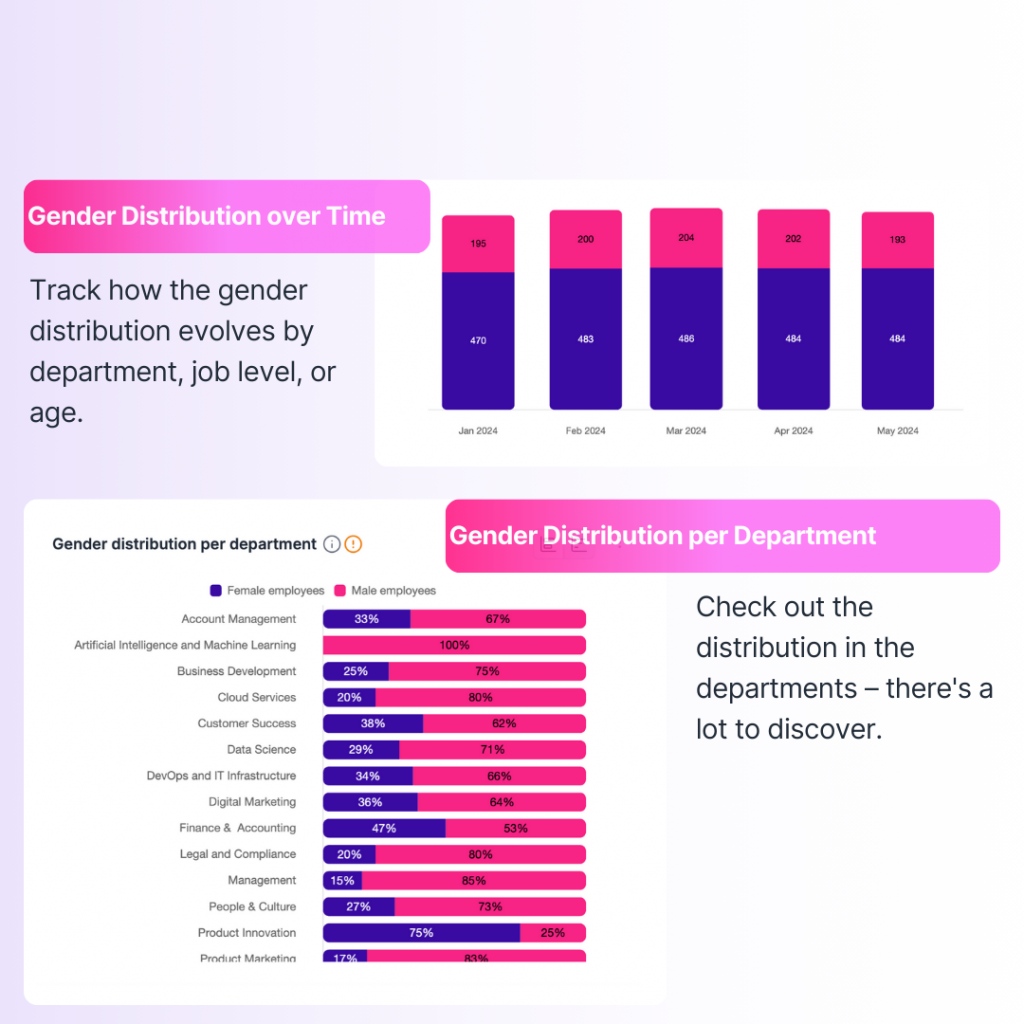The Problem: Gender Pay Gap in Germany
The gender pay gap, which is the wage difference between men and women, currently stands at 18 percent in Germany. This means that women earn on average 18 percent less in gross hourly wages than men. In concrete figures, women earned an average of €20.84 per hour in 2023, while men received €25.30 – a difference of €4.46 per hour.
What are the consequences of ignoring the problem?
If we don’t address the gender pay gap, we risk:
- Loss of top talent: Qualified women in particular seek employers who practice and promote equality.
- Lower employee satisfaction and productivity: The feeling of being treated unfairly demotivates and affects performance.
- Lasting reputational damage: Companies with a high gender pay gap risk negative headlines and loss of customers.
- Economic disadvantages: Studies show that eliminating the gender pay gap would have positive effects on economic growth.
The need for action is clear: Germany is lagging behind
The gender pay gap of 18 percent makes Germany one of the worst performers in the European Union. This underscores the urgent need for action to achieve pay equity and improve Germany’s competitiveness. Companies and society are called upon to actively take measures to close this wage gap and create a fairer working world for all genders.
How do we solve the problem?
peopleIX gives you the tools to really make a difference:
- Gender Pay Gap Analysis:
You uncover the unadjusted wage gap and find out exactly where action is needed. - Monitoring gender distribution in the leadership team:
You see live how the gender distribution in top management is developing. - Analysis of gender distribution in departments & over time:
You discover where there are still unequal ratios and immediately implement measures for more diversity.


.webp)

.webp)
